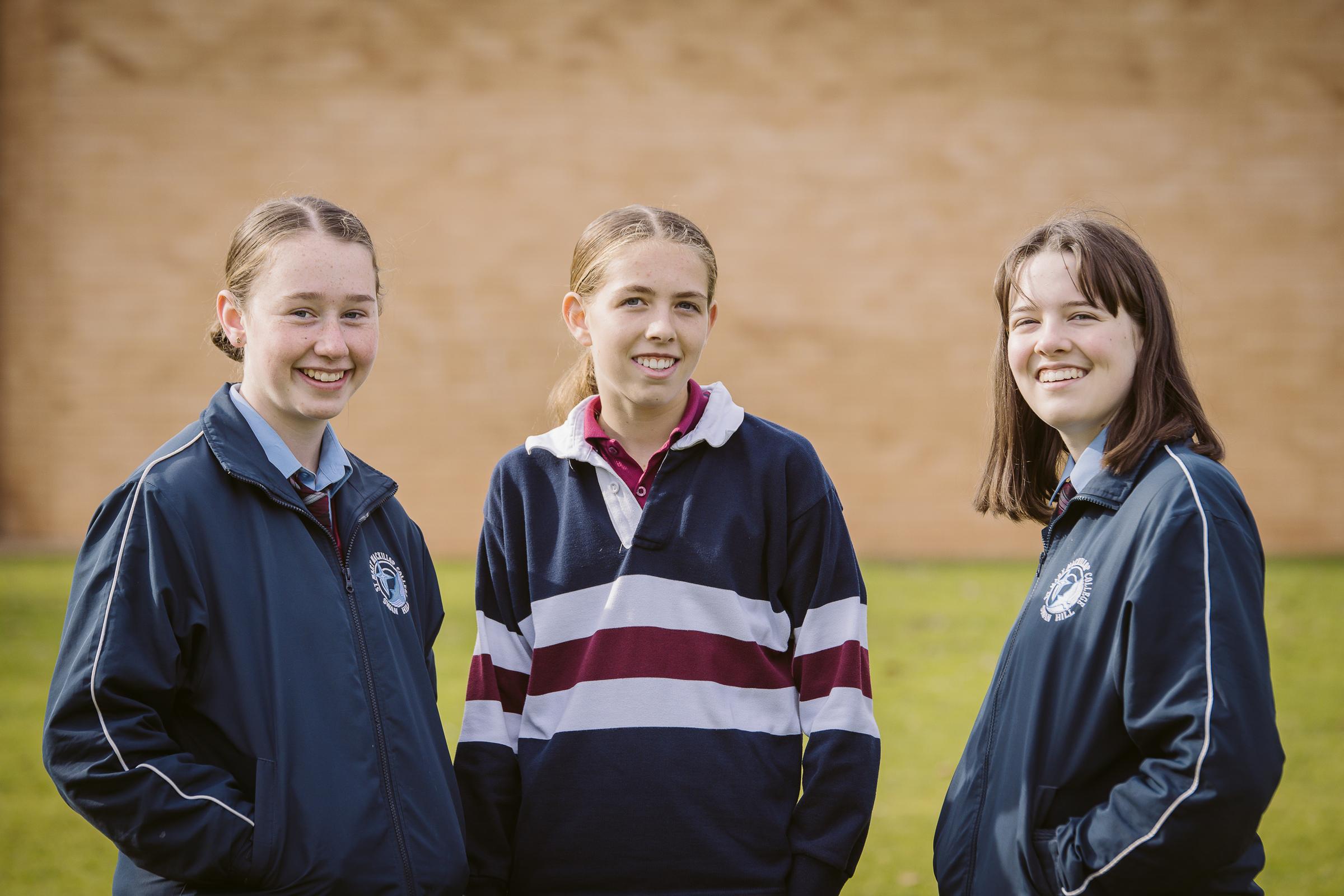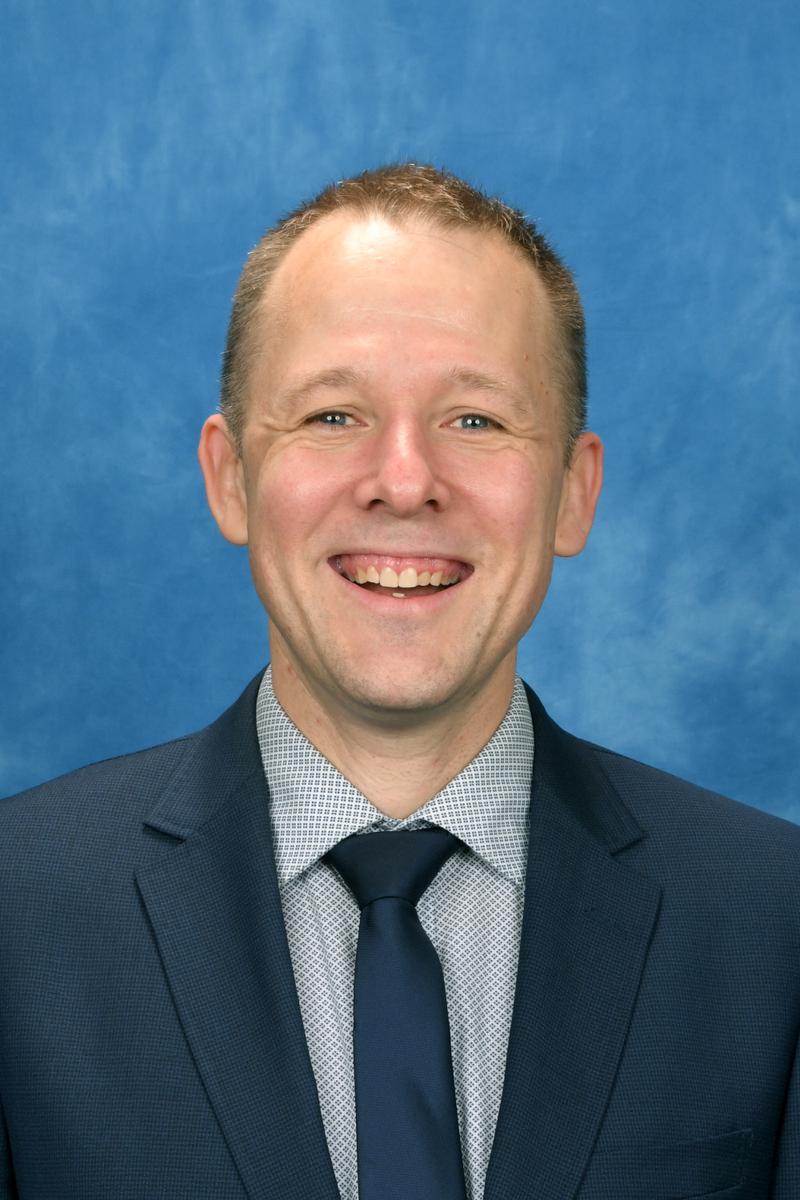DEPUTY PRINCIPAL - TEACHING & LEARNING REPORT
MR NATHAN LANE - DEPUTY PRINCIPAL: TEACHING & LEARNING

DEPUTY PRINCIPAL - TEACHING & LEARNING REPORT
MR NATHAN LANE - DEPUTY PRINCIPAL: TEACHING & LEARNING


We have completed our first three weeks of classes and Term 1 is in full swing. The energy and enthusiasm of the first few weeks of the new school year can never be taken for granted, and the vibrancy of staff reconnecting with each other and their students, as well as our students seeing their friends and teachers again after the summer holiday break is wonderful.
We hope our students feel a sense of belonging at school, that they have positive relationships and that they value learning and engage with the school environment. Recently I read a paper from the New South Wales Centre for Education Statistics and Evaluation which explores the idea that school practices (for example, positive teacher-student relations) combined with wellbeing and engagement (for example, high levels of effort and interest and motivation), equals a positive sense of belonging at school (for example, enhanced wellbeing and academic success). The link to the paper can be found here.
Goal Setting for 2022
The start of the new school year is the perfect opportunity to set some personal learning and wellbeing goals to work towards achieving throughout the year. If you are a student in Years 8 to 12, I hope you had the opportunity to review your reports from Semester Two last year and identify your areas of strength and areas for improvement. As a new Year 7 student commencing high school, what goals could you set? Could the goal be related to personal organisation and developing a weekly study plan? Perhaps you could think of a subject you struggled a little with in primary school and set a goal to improve in that area this year. When setting your goals, think of the SMART acronym: Specific, Measurable, Achievable, Realistic and Timely.
Dr Carol Dweck is the Lewis and Virginia Eaton Professor of Psychology at Stanford University. I am particularly interested in her research in the area of growth mindset and how goal setting can be seen through a growth mindset lens.
Dr Dweck’s research shows we can have either a fixed or growth mindset when it comes to the beliefs about our intelligence and the way we learn. Advances in research has also showed that our brains are much more malleable than we ever knew. This means that through good learning strategies and habits, practice and by asking questions, we can change from having a fixed mindset to a growth mindset and take on the challenges we face in our learning.
With this in mind, my desire for students at the College throughout 2022 is to approach your studies with a growth mindset. I encourage you to:
Learning Habits Rubric
In 2022, Learning Habits will be reported using the rubric here. Learning habits will appear on all school reports in place of the work habits that appeared previously on reports. The aim of reporting on learning habits is to provide feedback on the progress and growth of students as learners. Our focus is to provide students with the necessary skills they need to be self-regulated learners, empowered to maximise their opportunities to grow and learn.
Parent Access Module (PAM)
Have you seen your child’s timetable, Learning Area tasks and assessments, attendance data and other key information by logging on to our Parent Access Module (PAM) via the College website?
Our teachers have been busy updating and uploading to PAM the subject course outlines, assessment tasks and approximate due dates for these tasks in Semester One. Some students will be asked to upload their work to the Learning Areas on Simon, our Learning Management System, or to upload to Google Classroom. Google Classroom has become a popular platform for teachers to upload work for their classes, and for students to upload their assessments once completed.
One of the many advantages of Simon, our Learning Management System, is the ability for continuous online reporting. As soon as a piece of work is corrected, teachers upload the feedback and result for this task to Simon, which can then be accessed by students and parents in real time. Thus, there is no need to wait until the end of the term to access results on the semester report. As feedback on your child’s progress in subjects is continually being updated, we encourage you to check for updates and upcoming assessment tasks regularly.
Our Teacher Advisor (TA) program has commenced for the year. This program is an important part of our commitment to supporting students throughout their learning journey. Students will complete a TA interview with their Homeroom teacher throughout the term. This is an opportunity to touch base with the Homeroom teacher and to discuss progress in subjects and any support that might be required, as well as set some goals for learning. Parents of Year 7 students are invited to attend the first TA interview with their child and Homeroom teacher on Tuesday 15 March. This is an opportunity to meet your child’s Homeroom teacher and to understand how the TA interview process works. Further information on the Year 7 TA interview will be included in the next newsletter.
VCE/VCAL Parent Support guide
Curriculum Leaders have updated the VCE/VCAL Parent Support Guide which contains useful strategies for parents to support their child through the VCE/VCAL years. The updated document for 2022 has been uploaded to the Parent Access Module (PAM).
Safer Internet Day
Safer Internet Day was celebrated on Tuesday 8 February. This year’s theme for the day was ‘play it fair onine’, where everyone is called to play it safe and fair online. The OECD in their article ‘Child safety in the digital age: How education systems can help’, says education’s role in keeping children safe in the digital age is to equip children with the skills to effectively and ethically navigate the digital environment in order to help them understand the digital risks they face. The link to the article can be found here. We all have a role to play to ensure our students are safe online. As parents and carers, supporting your child to ask for help when they are online is also key to keeping them safe. The Office of the eSafety Commissioner has released a range of resources to help ‘play it fair online’. To access these resources, go to https://www.esafety.gov.au/newsroom/whats-on/safer-internet-day-2022
Future vision of St Mary MacKillop College
Throughout 2020 the Leadership Team and the staff worked with a company called ‘i equals d plus e’ (innovation, design education) and its founder, Dr Scott Alterator to create an Educational Rationale of the future vision of the school.
Scott completed numerous workshops, including two with key staff and one with parents. In these workshops the participants focused on capturing the aspirations, opportunities and challenges of a school community. This led into a discussion of organisational structures and parent perspectives on school identity.
With a school population in 2020 of 430 students and an anticipated enrolment of over 500 by 2025, much work needs to be completed around future facilities and in planning for buildings we also need to consider the educational needs of the community. Contemporary spaces are required to allow for a teaching and learning environment that is active, authentic, agentic, collaborative and ICT-rich. A focus on spaces, particularly in the early secondary years, that allows students to improve their creativity, collaborative skills, critical thinking and communication.
Dr Alterator writes in the educational rationale that “The future of work is recognised as dynamic, changing and increasingly unpredictable. As students engage in emerging and shifting workforces the focus on enterprise skills is emphasised. The importance for authentic learning that asks students to engage in real world challenges is paramount as they move into a dynamic future that is set to include potentially significant employment changes or periods of underemployment, significant re-skilling and training. The foundation for Young Australians recommends enterprise and work-integrated learning initiatives to provide immersive enterprise education and meaningful work experiences”.
In 2021, four of our amazing teachers led a group of Year 10 students through a curriculum program using a pedagogy that allowed them to engage in their creativity, collaborative skills, critical thinking and communication. The staff and students learned much about themselves and were provided with the opportunity to engage in their learning in new and innovative ways. Throughout the year the four staff have been mentored by experts in the field of contemporary pedagogies that improve student learning outcomes.
In 2022, this pedagogical approach will be embedded across the Year 9 core curriculum areas of English, Mathematics, Religious Education and Science. Our amazing team at Year 9 have already started to deliver engaging and contemporary units to our students. In this edition of the newsletter, you will see photos of the work the students have already undertaken. This includes a focus on proportion and scale in Maths to design and create a replica of the Tower Bridge in London, and organising a Science fair to explain to Year 7 students the digestive system.
This is an exciting time for St Mary MacKillop College, as we prepare our students for their future, no matter what field that might be. Over the year, we will update our community on the exciting learning our Year 9 students are undertaking.